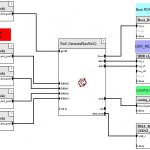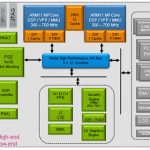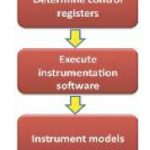Earlier this year, when I was looking at Carbon’spast year performance which provided record breaking revenue with whopping jump in bookings, one thing was certain that Carbon Performance Analysis Kits (CPAKs) would drive major growth in future, not only for Carbon, but also for the semiconductor industry. It will initiate … Read More
Tag: carbon
Optimize Your Interconnect & Design at System Level for Best Results
As the SoC design size, complexity and functionality keeps on increasing with multiple IPs packed together and design time and time-to-market keeps on decreasing amid critical constraints on PPA, there is no other alternative than to do the design first-time-right not to miss the window of opportunity. And that could be possible… Read More
TCAD to SPICE Simulation of Power Devices
The periodic table shows that Silicon (Si) is in a column along with other elements like Carbon (C) and Germanium (Ge). With so much emphasis on Silicon, you’d think that the other semiconductor materials have been neglected a bit.
Silicon is a wonderful material and most of our consumer electronics and handheld devices … Read More
Carbon Design Systems – Secret of Success
Last week, after learning from the press releaseof Carbonabout its rocking sustained growth with record-breaking revenue and a thumping 46% increase in bookings, I was interested to know some more details about what drives Carbon to such an amazing performance in an EDA market that is generally prone to growth of a few percentage… Read More
How to Develop Accurate Yet High Performance Models
In today’s environment of semiconductor design, SoCs are crammed with various IPs with multiple functionalities and processors integrated together. In such an event it has become necessary to model the system and verify on Virtual Platform before getting into actual design and fabrication. And that requires modelling of each… Read More
Taming The Interconnect In Real World For SoCs
Interconnect plays a significant role in the semiconductor design of a SoC; if not architected and handled well, it can lead to an overdesigned SoC impacting on its power, performance and area. Since a SoC generally contains multiple IPs requiring different data paths to satisfy varying latency and performance cycles, it has … Read More
Swap and Play Extended To Chip Fabric and Memory Controllers
Virtual platforms enable software development to take place on a model of an electronic system. What everyone would like is models that are fast and accurate but that is simply not possible. Fast models are fast because they don’t model everything at the signal level. And accurate models get to be accurate by handling a lot of detail… Read More
ARM Partners with Carbon on Cortex-A57
Just in time for DAC, Carbon have announced that they have expanded their partnership with ARM to create and deliver models for the ARM Cortex-A57 processor and related IP. One piece of related IP is the Cortex-A53 which can be configured in big.LITTLE multi-core setups to achieve the sweet spot of higher performance and lower power.… Read More
Using Virtual Platforms to Make IP Decisions
Most SoC designs these days consist largely, but not entirely, of purchased IP blocks. But there are lots of tradeoffs involved in selecting IP blocks, and since those tradeoffs change with process node, even decisions that seem “obvious” based on the last generation of the design, may not be so clear cut. Even if you… Read More
Software Driven Power Analysis
Power is a fundamentally hard problem. When you have finished the design, you have accurate power numbers but can’t do anything about them. At the RTL level you have some power information but it is often too late to make major architectural changes (add an offload audio-processor, for example). Early in the design, making… Read More







